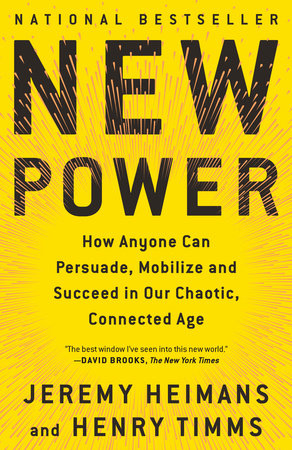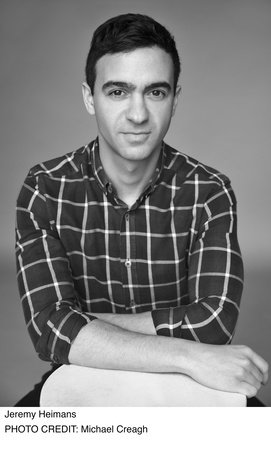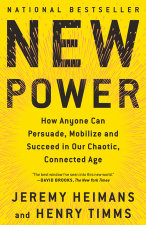New Power
How Power Works in Our Hyperconnected World--and How to Make It Work for You

In this indispensable guide to navigating the twenty-first century, two visionary thinkers reveal the unexpected ways in which "new power" is reshaping politics, business, and life. And also how to make new power work for you.
What is new power? It's Black Lives Matter, it's the Ice Bucket Challenge, it's Airbnb, it's Uber and Lyft. As they did in their immensely influential TED talk, Jeremy Heimans and Henry Timms show the strength of new power and contrast it to "old power," the foundations of which are rapidly crumbling in the face of technology and our ubiquitous connectivity.
Drawing on examples from business, activism, and pop culture, as well as the study of organizations like Lego, NASA, Reddit, and TED, Heimans and…
$21.00
February 26, 2019
Jeremy Heimans is the co-founder and CEO of Purpose, a public-benefit corporation that specializes in building and supporting social movements around the world. A lifelong activist, in 2005 he co-founded GetUp!, an Australian political organization with more members than all of Australia’s political parties combined, and he is a co-founder of the global campaigning organization Avaaz and the LGBT rights platform All Out. He is a recipient of the Ford Foundation’s 75th Anniversary Visionary Award for his work as a movement pioneer. He has been named one of Fast Company’s Most Creative People in Business.

Henry Timms is the President and Chief Executive Officer of Lincoln Center for the Performing Arts. He is the creator of the largest global philanthropic movement in history, #GivingTuesday, which has raised over $7 billion in donations for good causes. He is also the co-author of the international best-selling book New Power: How Power Works in Our Hyperconnected World–and How to Make it Work for You, and former President and Chief Executive Officer of the 92nd Street Y.
Henry serves at the Harvard Kennedy School as a Hauser Leader and is a Senior Fellow at both the Center for Philanthropy and Civil Society at Stanford University and the United Nations Foundation.
